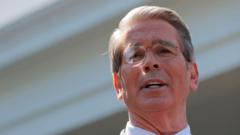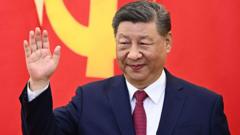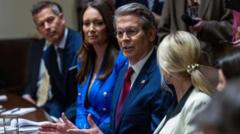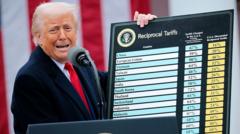In a spirited defense, Kevin Hassett argues that the Trump administration's economic agenda is a focused approach aimed at reshaping global trade and reducing U.S. dependence on foreign goods, rather than a haphazard plan.
Trump Administration's Economic Strategy: Chaos or Calculated Urgency?
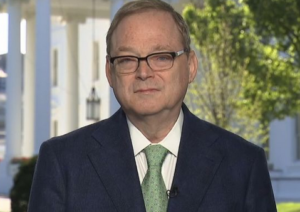
Trump Administration's Economic Strategy: Chaos or Calculated Urgency?
National Economic Council Director Kevin Hassett defends the Trump administration's economic policies as systematic and strategic, countering claims of chaos.
In a recent interview on CNN's State of the Union, Kevin Hassett, Director of the National Economic Council, strongly countered allegations that the Trump administration's economic agenda is marked by chaos. Instead, he portrayed it as a meticulously constructed strategy intent on transforming global trade and bolstering domestic industries. Utilizing a football analogy, Hassett described the administration's efforts as akin to employing a “two-minute offense,” emphasizing the swift execution of various policies, spanning tax cuts, deregulation, and aggressive trade reforms.
Central to this approach is the Reciprocal Trade Act, which Hassett insists addresses a vital national issue — the United States’ risky reliance on imported goods, especially during conflicts. He noted that negotiations were underway with 130 countries who are responding to the administration's proposition of reciprocal treatment for U.S. exports, which could potentially reduce tariffs significantly, down to 10% in many instances.
While acknowledging that discussions with China have been limited and in their early stages, Hassett expressed optimism regarding negotiations with other nations. He asserted that the negotiations are moving rapidly and are characterized by clarity and seriousness from participating countries. In light of criticisms regarding the Trump administration’s global strategy, Hassett's assertive message emphasized a sense of calculated urgency, suggesting that the U.S. is finally adopting an offensive approach in a global trade landscape it has historically struggled to navigate effectively.



